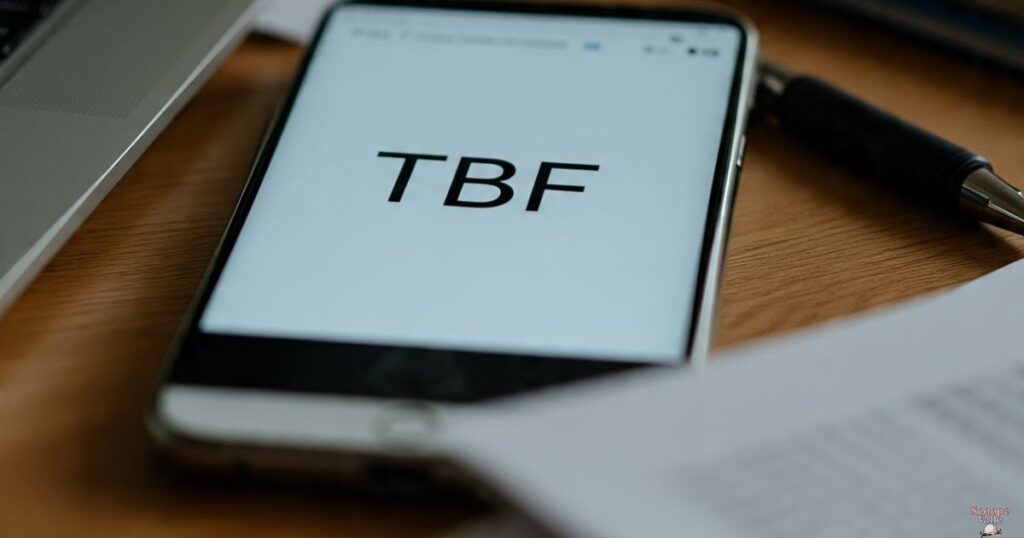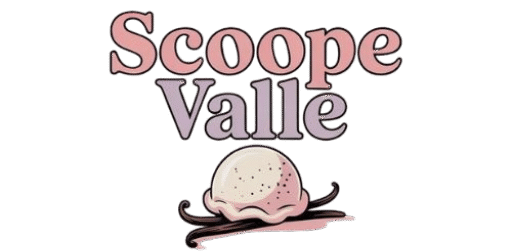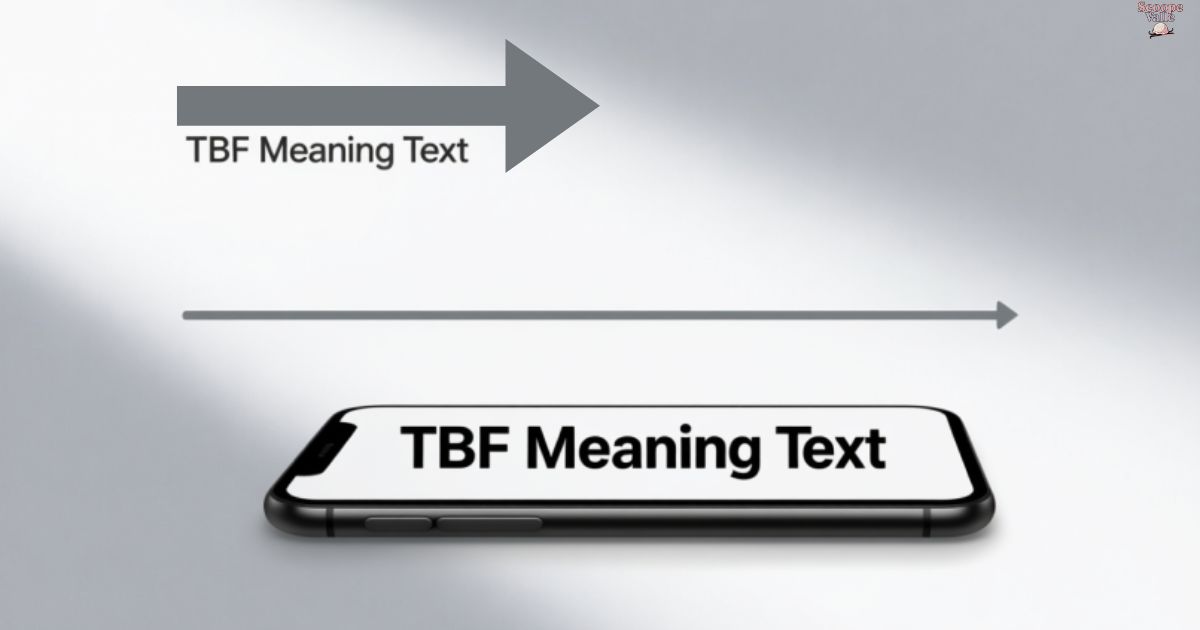Ever been in a conversation where someone drops “TBF” and you’re left wondering what it stands for? You’re not alone! TBF is one of those short, simple acronyms that can make your messages sound fair and balanced. It’s a small phrase with a big impact especially when you want to add honesty or acknowledge another perspective in a discussion.
Definition & Meaning
TBF stands for “To Be Fair.” It’s a way to introduce a balanced or honest viewpoint, especially when you want to acknowledge both sides of a situation. Think of it as a phrase that keeps conversations grounded and objective.
For example:
- Friend 1: “That restaurant took forever to serve!”
- Friend 2: “TBF, it was a packed weekend night.”
Here, TBF helps show understanding rather than blame. It’s a sign of fairness and consideration perfect for keeping discussions polite and thoughtful.
Also read: OPT Meaning in Text: A Comprehensive Guide (Clear and Practical)
Background & History
The phrase “to be fair” has been used in spoken English for centuries, often to add balance in discussions or debates. As communication moved online, abbreviations became essential for speed and convenience.
By the early 2000s, TBF started appearing on forums, texting apps, and early social media platforms. People wanted quicker ways to express fairness without typing the whole phrase, and TBF fit perfectly.
Usage in Various Contexts
TBF is versatile and can fit into different types of conversations:
1. Texting & Casual Chats 💬
Used when you want to acknowledge another person’s perspective.
Example:
“TBF, he did tell us he’d be late.”
2. Social Media Posts 📱
Perfect for comments that add balance to heated opinions.
Example:
“TBF, the movie wasn’t great, but the soundtrack was awesome!”
3. Gaming Discussions 🎮
Gamers often use TBF to assess situations fairly.
Example:
“TBF, that team practiced a lot before the tournament.”
4. Everyday Conversations 🗣️
Even in person, people may say “to be fair” before sharing a balanced thought.
Example:
“To be fair, she handled the project really well.”
Common Misconceptions & Clarifications
Despite being simple, TBF can sometimes be misunderstood. Here are a few common mix-ups:
- Misconception 1: TBF means “To Be Frank.”
- Clarification: Although similar, “To Be Fair” is far more common and contextually correct.
- Misconception 2: It’s only for arguments.
- Clarification: You can use TBF anytime you want to show balance, not just during disagreements.
- Misconception 3: It’s professional enough for emails.
- Clarification: TBF is casual and better suited for texting or informal chats.
Similar Terms & Alternatives
| Term | Meaning | Best Used In |
|---|---|---|
| TBF (To Be Fair) | Adds balance or fairness | Texts, social media |
| In all fairness | A more formal version | Discussions, meetings |
| To be honest (TBH) | Emphasizes honesty | Casual chats |
| Fair enough | Accepts a point made | Conversations, debates |
How to Respond to This Term
Your response depends on the tone of the message.
Casual:
- Friend: “TBF, he did try to help.”
- You: “Yeah, that’s true!”
Funny:
- Friend: “TBF, the pizza was late but worth it!”
- You: “Fair point — my stomach agrees!”
Professional:
- Colleague: “TBF, the client made valid points.”
- You: “Agreed, let’s address those concerns.”
Regional or Cultural Differences
TBF is most common in English-speaking countries like the US, UK, Canada, and Australia. It’s particularly popular in the UK, where the phrase “to be fair” is part of everyday speech.
In non-English-speaking regions, TBF may be less understood, as it relies on English language context. When chatting internationally, it’s often better to use full phrases like “to be fair” for clarity.
Comparison with Similar Terms
| Term | Meaning | Key Difference |
|---|---|---|
| TBF (To Be Fair) | A balanced viewpoint | Short and casual |
| To Be Honest (TBH) | Personal truth or opinion | Focuses on honesty, not fairness |
| That Said | Adds a counterpoint | Used to contrast, not balance |
| In All Fairness | Equal perspective | More formal, longer version |
Usage in Online Communities & Dating Apps

Online Communities:
People use it in Reddit threads, Discord chats, or gaming groups to stay fair during discussions.
Example: “TBF, both teams played really well.”
Dating Apps:
Some people use it in bios or messages to sound open-minded.
Example: “TBF, I’m more of a movie night person than a partygoer.”
Hidden or Offensive Meanings
Good news TBF is not offensive at all. It’s considered one of the safest and most neutral acronyms you can use.
The only issue arises if it’s overused or used sarcastically, which might make you sound dismissive. For example:
“TBF, you always mess things up.” (This can sound rude.)
Suitability for Professional Communication
TBF is best left out of formal settings like emails, reports, or business chats. While it’s fine for friendly coworkers, it might look unprofessional in serious communication.
Instead of writing:
“TBF, the data was late.”
Say:
“In all fairness, the data arrived later than expected.”
This maintains professionalism while keeping the same balanced meaning.
FAQ’s
What does TBF mean in texting?
It means “To Be Fair,” and it’s used to express a balanced or honest viewpoint.
Can I use TBF in formal communication?
No, it’s better for casual chats. Use “in all fairness” in professional contexts.
Is TBF the same as TBH?
Not exactly. TBH focuses on honesty, while TBF emphasizes fairness.
Where is TBF most common?
It’s popular in English-speaking countries and among online communities.
Can TBF ever be rude?
Not usually, unless it’s used sarcastically or to downplay someone’s opinion.
Conclusion
TBF short for “To Be Fair” is more than just internet slang. It’s a way to keep conversations balanced, honest, and kind. Whether you’re texting a friend, debating online, or chatting on a dating app, TBF helps you sound considerate and fair-minded.
Tylor John, with five years’ experience, beautifully crafts information on all topics and inspiring readers worldwide with positivity, faith, creativity, love, and hope.

